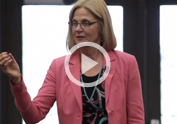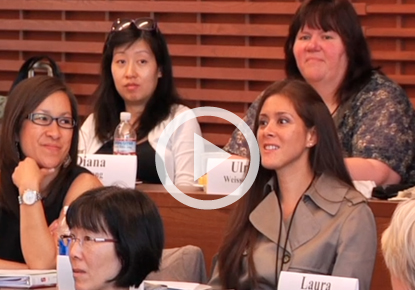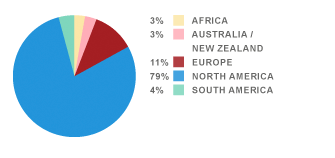ACTING WITH POWER
The ability to function effectively within a hierarchy is a crucial component of leadership, yet many women struggle with "authority issues" that make certain hierarchical roles and positions difficult for them. This session draws on the craft of acting and the concepts of psychology to help you learn how to use them to develop the characters that can play these roles effectively.
BUILDING ALLIANCES
Building strong alliances is critical for today's leader particularly when the formation and implementation of new strategies depend on allies who may not be subordinates and who may even seem like natural adversaries. Ultimately, alliances are based on trust and reciprocity.
INFLUENCING WITHOUT AUTHORITY: THE ONE TO THE MANY
Learn the importance of influencing small groups, particularly with little or no authority. Analyze effective influence tactics and develop multiple perspectives on how to gain influence through dynamic interactions with others.
LEADERSHIP COMMUNICATIONS
As a leader, you spend the majority of your time communicating with others—team members, subordinates, clients, and public constituents. You probably don't spend much time thinking about the way you communicate, nor are you likely, in the corporate setting, to get honest feedback on the messages you send. Yet the quality of your communications largely determines your effectiveness. This session will help you appreciate the nature and complexity of communication and provide guidelines for both improving your own communication style and recognizing the unique styles of others.
NEUROSCIENCE AND THE CONNECTION TO EXEMPLARY LEADERSHIP
The exponential growth in our understanding of the workings of the human brain has led to a rather startling and maybe embarrassing (even depressing) conclusion. While the human brain is unique among species in its ability to strategize, conceptualize, hypothesize, memorize, etc., it is now undeniable that most human decisions are shaped by non-conscious instinctual neural systems and processes. In these two sessions, you will first gain an understanding of the workings of the instinctual brain and then leverage that understanding to be exemplary leaders—to be more effective at making decisions and influencing others' (e.g., key stakeholders’) decisions.
MINIMIZING GENDER BIAS IN THE WORKPLACE
In this session we will strategize about how to create workplaces where all people—women and men—can thrive. The main focus will be on reducing gender biases that can undermine women’s achievement and limit their advancement. This session will provide an overview of the research on the way that biases emerge and describe what the consequences are for women and for their workplaces. It will also provide strategies for minimizing or eliminating these biases. You will be invited to share your own experiences and to describe the approaches your workplaces have taken to advance women. You should leave the session with research-informed strategies for creating fair and effective workplaces.










